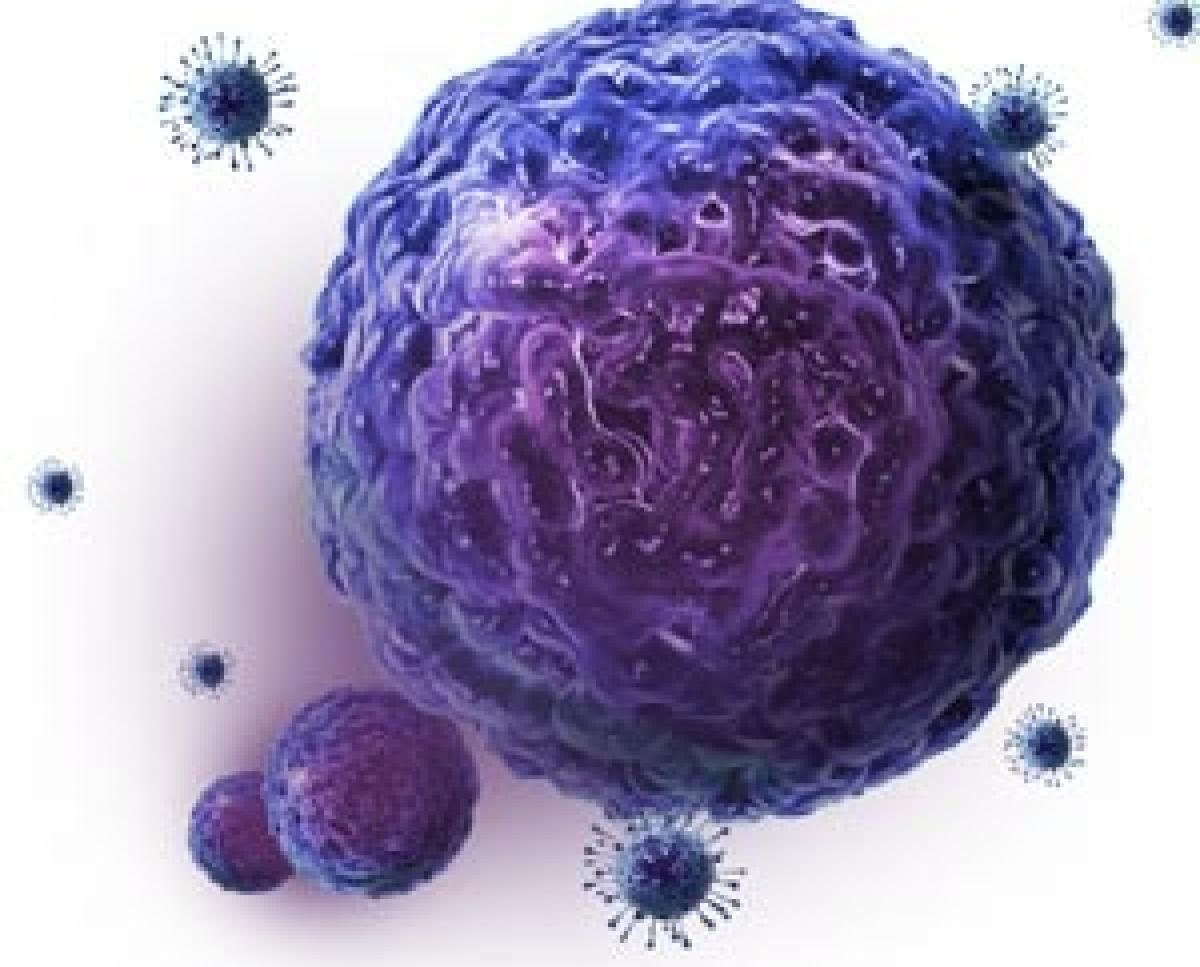Tumour hardness may develop cancer cells

Tumour hardness and hypoxia lack of oxygen at the tumour\'s core trigger a biological switch that causes cancer stem cells to develop, a recent study has found. This biological switch is critical to a tumour\'s ability to invade other tissue a process called metastasis.
Tumour hardness and hypoxia lack of oxygen at the tumour's core trigger a biological switch that causes cancer stem cells to develop, a recent study has found. This biological switch is critical to a tumour's ability to invade other tissue a process called metastasis.
"Our study suggests that to combat cancer, we should be developing treatments that target the stiff, hypoxic regions of tumours. We were surprised to see just how important these two properties in the tumour micro-environment stiffness and hypoxia were for regulating cancer stem cells," said Celeste Nelson, Professor at the Princeton University, in the US.
The cancer stem cells that specialise in generating new malignant cells represent only a small proportion of the total cells in a tumour, but researchers believe they play a key role in spreading the disease.
Using cultures of human breast-cancer cells and mouse mammary-cancer cells, Nelson and her colleagues discovered an association between a protein called integrin-linked kinase and the creation of cancer stem cells.
The researchers created a range of human and mouse breast-cancer cultures reflecting different tissue conditions and showed that stiff hypoxic cultures did indeed promote cancer stem cells. But when they eliminated the integrin-linked kinase from those samples, they found that the cancer stem cells stopped forming.
Conversely, when they forced abnormal levels of integrin-linked kinase in samples containing softer or less hypoxic tissue, cancer stem cells formed. They also confirmed a significant association between tumour stiffness, integrin-linked kinase and cancer stem cell presence in samples from human breast-cancer patients.
"We could see tumour cells expressing cancer stem-cell markers and integrin-linked kinase located at regions with high collagen, which is used to estimate stiffness in a tumour," said Mei-Fong Pang, Researcher at the Princeton University.
The findings, published in the journal Cancer Research, suggested that stiffness and hypoxia cause integrin-linked kinase to behave abnormally, which in turn triggers cancer stem-cell formation.
There are likely other features in tumours that cause cancer stem cells to form, but the findings indicate that stiff, hypoxic conditions and their effects on integrin-linked kinase are two of the most prominent ones.














